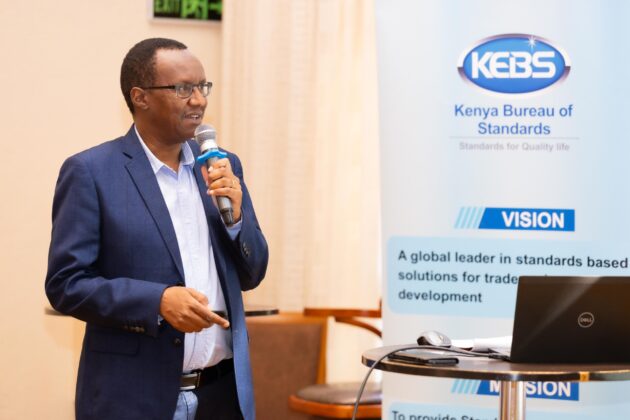
KEBS to probe Uji power, Okra amid sexual wellness buzz
NAIVASHA, Kenya Apr 30 – The Kenya Bureau of Standards (KEBS) is set to initiate a thorough investigation into Uji Power and Okra to ascertain their authenticity.
These products have surged in popularity in Kenya over the past few months, amid assertions that they enhance sexual wellness among consumers.
Uji Power is a powdered blend utilized to prepare porridge, while Okra is a vegetable whose chopped pods are soaked in water overnight, creating a liquid purportedly consumed for its health and sexual advantages.
“This is intelligence that we have received and we shall embark on an investigation immediately,” Director Market Surveillance Peter Kaigwara said on Tuesday during a media forum with journalists.
KEBS’ attention to Uji Power and Okra was initiated by a query from a journalist who sought clarification on whether these widely circulated and utilized products adhere to the prescribed standards.
Kaigwara affirmed his intention to direct his team of market surveillance officers to scrutinize the products and potentially disclose their findings to the public regarding their authenticity.
“My team will definitely look into this with the sole aim of establishing if they meet the standards,” he said.
While KEBS primarily focuses on maintaining quality and safety through standardization, Geoffrey Karau, Director of Quality Assurance and Inspection, emphasized the importance of other relevant agencies addressing concerns regarding Uji power and Okra.
He in particular suggested that the Kenya Plant Health Inspectorate Service (KEFIS) should investigate Okra, while the Kenya Pharmacy and Poisons Board (KPPB) should handle issues related to Uji power even as KEBS mulls examining their authenticity.
Due to the limited capacity of only 55 enforcement officers in Kenya to inspect various products in the market, Kaigwara issued a call to action, urging Kenyans to report any suspicious or counterfeit products circulating in the market.
The plea comes in the aftermath of the recent fake fertilizer scandal, which posed a threat to the nation’s food security.
“We normally act and use all manner of information and take it as intelligence,” he said.
Kaigwara cautioned about the severe consequences of substandard products in the market, which include health and safety risks, environmental pollution, and unfair competition.
He further revealed that aside from public contributions, KEBS is collaborating with a multi-agency team to curb the spread of substandard goods in the market.
